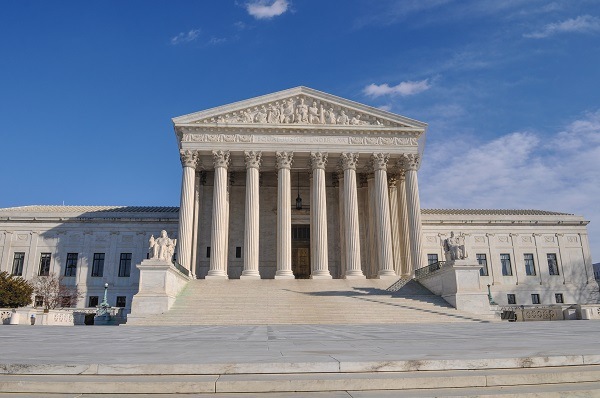On July 12, 2022, the Equal Employment Opportunity Commission (“EEOC”) released updated guidelines for employers who want to start or are continuing to screen their workforce for COVID-19. Those employers should review their COVID-19 policies to ensure compliance with the updated guidelines which clarifies when screening and testing workers for COVID-19 is legally permissible under the Americans with Disability Act (“ADA”).
Background
Previously, due to the urgency created by the pandemic, the EEOC had broadly permitted employers to test their workers for COVID-19 and not be in violation of the ADA. Specifically, the EEOC’s prior guidance stated that having mandatory COVID-19 testing sufficiently met the ADA standard that any mandatory medical test has to be “job related and consistent with business necessary.” In fact, in some industries, such as in music, television, and film production, Los Angeles local orders even required regular and periodic testing of COVID-19.
Screening & Testing
Now, based on the updated guidelines, an employer’s ability to screen and test its workers for COVID-19 will be contingent upon whether the employer can show the measures are “job related and consistent with business necessity.”
Possible considerations in making the “business necessity” assessment include the following:
- level of community transmission;
- the vaccination status of employees;
- the accuracy and speed of processing for different types of COVID-19 viral tests, the degree to which breakthrough infections are possible for employees who are “up to date” on vaccinations, the ease of transmissibility of the current variant(s);
- the possible severity of illness from the current variant;
- what types of contacts employees may have with others in the workplace or elsewhere that they are required to work (e.g., working with medically vulnerable individuals); and
- the potential impact on operations if an employee enters the workplace with COVID-19. In making these assessments, employers should check the latest CDC guidance (and any other relevant sources) to determine whether screening testing is appropriate for these employees.
In short, this means that while employers are still permitted to administer tests to its workers for COVID-19, certain factors must be met showing that the testing is “job related and consistent with business necessity.”
Notably, the updated guidance made clear that antibody testing will never meet the standard of business necessity because such testing would only show whether the individual has ever been exposed or infected, not current infection or conclusively establish immunity.
Returning to Work
The updated EEOC guidance provides that the ADA permits employers to require a note from a qualified medical professional explaining it is safe for the employee to return to work and perform his or her job duties when an employee returns to the workplace after being out with COVID-19. Alternatively, the employer may follow the CDC guidelines to determine whether it is safe to allow the employee to return to work without a doctor’s note.
Hiring & Screening
The EEOC also updated its guidance on screening job applicants for symptoms of COVID-19. The EEOC provides that employers may screen an applicant for COVID-19 after making a conditional job offer if the employer does so for all entering employees in the same type of job. Again, like screening and testing the existing workforce, screening, and testing of applicants for COVID-19 symptoms is permissible as long as it is “job-related and consistent with business necessity.”
The EEOC further advises that if an applicant is unable to start working because of a positive COVID-19 test, being symptomatic, or because of exposure, employers must follow current CDC guidance to determine when and how it would be safe for such individuals to return to the workplace. Employers must also consider accommodations obligations before making any decision.
Withdrawing Job Offer
However, an employer who follows current CDC guidance addressing the individual’s situation may withdraw the job offer if:
(1) the job requires the applicant to start working immediately,
(2) CDC guidance recommends the worker to not be in proximity to others, and
(3) the job requires that the worker be in such proximity to others, whether at the workplace or elsewhere.
However, given that for some people there may only be a short period of time required for isolation or quarantine, employers may be able to adjust a start date or permit telework (if job duties can be performed remotely).
An employer may not postpone a start date or withdraw a job offer because of concern that the applicant is older, pregnant, or has an underlying medical condition that puts the applicant at increased risk from COVID-19. If an underlying medical condition is a disability, an employer must determine whether the individual’s disability poses a “direct threat” by starting work immediately and, if so, whether reasonable accommodation can be provided to sufficiently lessen or eliminate any risks without causing an undue hardship.
Mandatory Vaccines
The new guidance also provides further clarification regarding mandating vaccinations. The federal EEO laws do not prevent an employer from requiring all employees to be vaccinated against COVID-19, subject to the reasonable accommodation provisions of Title VII and the ADA and other EEO considerations discussed in the guidance. If there is such requirement, the EEO laws do not prevent employers from requiring documentation or other confirmation that employees are up to date on their vaccinations. However, the EEO laws may require employers to make exceptions to a vaccination requirement for some employees and provide reasonable accommodations. for employees who, because of a disability or a sincerely held religious belief, practice, or observance, do not get vaccinated against COVID-19, unless providing an accommodation would pose an undue hardship on the operation of the employer’s business.
Conclusion
Notably, the EEOC said in its update, “this change is not meant to suggest that such testing is or is not warranted; rather, the revised Q&A acknowledges that evolving pandemic circumstances will require an individualized assessment by employers to determine whether such testing is warranted consistent with the requirements of the ADA.”
We recommend employers review the updated EEOC guidance as they continue to navigate through the COVID-19 pandemic and the workplace. As the pandemic continues, federal agencies and local governments will continue to update their guidelines for employers to review and refer to and revise their COVID-19 policies accordingly.
We will continue to monitor developments in this area. If you have any questions about navigating through federal and local COVID-19 requirements in the workplace, please contact any attorney at Kahana & Feld’s Labor and Employment Litigation practice group.

